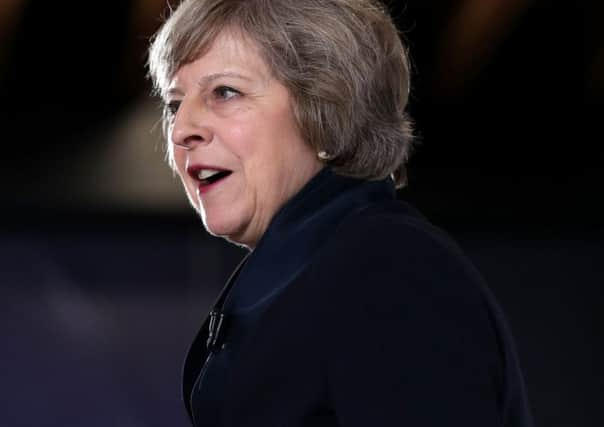YP Comment: New PM must bring stability


BRITAIN’S second female Prime Minister will enter 10 Downing Street tomorrow facing challenges which dwarf those that faced the first.
The tasks confronting Theresa May are more daunting than even those which awaited Margaret Thatcher in 1979. Negotiating Britain’s exit from the EU, stabilising the economy, healing a divided nation and turning Conservatives riven by bitter splits back into an effective government would all be significant challenges in themselves.
Advertisement
Hide AdAdvertisement
Hide AdTaken together, they present Mrs May with the prospect of possibly the most difficult premiership of modern times, which will require all of her characteristic calm, tenacity and deliberation if she is to succeed.
It is to be sincerely hoped that she does, for Britain is sorely in need of a steadying and unifying Prime Minister.
The turmoil of the period since the Brexit vote and uncertainty over what the future holds have left the country nervous and directionless.
Mrs May emerged as the most credible contender to succeed David Cameron. She is a one-nation Conservative with a solid track record at the Home Office, one of the most difficult Government briefs, a broad base of support within the party and an air of unflappability which is what is required.
Advertisement
Hide AdAdvertisement
Hide AdThe withdrawal of her only rival, Andrea Leadsom, has also paved the way for a rapid handover of power from Mr Cameron to Mrs May by tomorrow evening, which is to be welcomed.
Dragging out the leadership contest over Parliament’s summer recess and into September would only have deepened the country’s sense of drift and would not have benefitted anyone.
Mrs May’s priorities must now be to settle nerves both within the Government and in the country, and begin to set out a detailed programme for how Britain moves forward.
Theresa May has made much of her experience and competence. She will need to call on all of this and more for the challenges that lie ahead.
Farming’s plan
Advertisement
Hide AdAdvertisement
Hide AdToday’s opening of the 158th Great Yorkshire Show marks the opportunity for Britain’s premier agricultural showcase to send an unequivocal message to the Government at a time of uncertainty for farming.
Last month’s vote to leave the EU means that at some point in the next few years, a funding regime that has been in place for four decades will disappear, leaving agriculture to forge a new future.
It must be one of the Government’s main priorities to work with farmers to ensure that such a future is a bright one, for the sake of food security, the management of the countryside, the health of the rural economy and the welfare of the environment.
There cannot be fudge or delay on the part of the Government in collaborating with agriculture to set out a way forward that ensures the industry prospers, and the Great Yorkshire Show is the ideal forum for farming to begin what is likely to be a lengthy period of lobbying.
Advertisement
Hide AdAdvertisement
Hide AdBut it cannot begin too soon. Though disentangling British farming from the EU will be a protracted process, it is vital that a new measures are put in place so that the transition can be effected as smoothly as possible.
The CLA’s manifesto for the future, setting out six core principles, which is unveiled at the show today, is an excellent starting point for discussion, and its aim of establishing a world-leading policy for food, farming and the environment is one which the Government should wholeheartedly embrace.
In it together
Success stories in Yorkshire’s thriving business community are always heartening, providing yet more evidence of our region’s resourcefulness and entrepreneurial spirit.
One such is that of Suma, the Elland co-operative that is both expanding and pointing the way to a form of collaborative working that will undoubtedly prove appealing to other young companies looking to establish a sound ethical basis for their businesses.
Advertisement
Hide AdAdvertisement
Hide AdSuma’s model of paying everybody the same is plainly fostering a sense of ownership amongst its staff. The value of that is reflected in the bottom line, and an annual turnover of £42m is the result.
There is a long and proud tradition of co-operative working in Yorkshire, and this modern example is proof that it remains a model with much to offer. It is also a reminder that against a difficult economic backdrop, one of the most valuable assets for any company is a committed workforce.